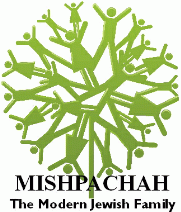
Welcome to the Women’s League conversation about the modern Jewish family.
One of the most famous stories from the Talmud – one that is applicable to almost any situation – is the one about Hillel who is asked by a non-Jew (BT Shabbat31a): “Teach me the entire Torah while I stand on one foot.” Hillel’s response: “What you find hateful, do not do to your friend. This is the entire Torah – the rest is commentary.”
Easy enough to decipher for even those not schooled in Talmudic thought. Understanding Hillel’s dictum — simply put, that we should be nice to each other — is the easy part; putting it into practice is an entirely different matter.
Most humans are creatures of habit – we approach change with a variety of responses: we embrace it, we welcome it, we are wary, suspicious, fearful or terrified of it. Change can be disruptive and change can be liberating.
While the Jewish family has endured from time immemorial – beginning with the biblical generations of Abraham and Sarah and their descendants – through exile, dispersion, expulsion, cultural diffusion, immigration and even genocide – it now confronts modernity. Once characterized by mother, father and children, the Jewish family has been eclipsed by social reality. According to the most recent Jewish population survey (2000-01) almost half of Jewish marriages today are intermarriages; many marriages (again almost half) result in divorce; Jews marry later and have fewer children. We know also that there is a substantial percentage of Jews who remain single, either by choice or by situation, and have created a new demographic category: single mother/parent by choice. The last decade has seen a rapidly increasing political and social recognition of same sex families that biologically conceive or adopt.
Our social terrain has changed, remarkably and irrevocably. Now we must begin a dialogue that moves us from the recognition of diversity to the advocacy of pluralism. In social scientific terms, diversity and pluralism are not synonyms. Diversity is variety – pluralism is an acceptance of and engagement with diversity.
Whether it is a mother/father/children, couples with no children, same-sex unions with or without children, single parents, widows, singles, joined families, families with children who are biologically conceived or adopted, a Jewish family defines itself as such, it is not defined by others.
Barbara Ezring, Education/Program Team Leader, 2017-2020
Karen Block, Modern Jewish Family Chair
Marjorie E. K. Fuhrmann, Social Action Team Leader, 2017-2020
Ellen Kaner Bresnick, Education/Program Team Leader, 2014-2017
Lisa Kogen, Education/Program Director, 2003-2017
For several years, Women’s League has engaged in conversation about Mishpachah, the Modern Jewish Family. The goal of the first year, Mishpachah I, was to identify the diverse character of our Jewish families and to encourage our communities to be pluralistic, welcoming, inclusive and openhearted. Our second year, Mishpachah II, expanded this concept and concentrated on the diverse structures and identities of our families.
During this third year, we will focus on defining our families and communication within our families. The materials may be used as Divrei Hokhmah or as a D’var Torah before a meeting or as the topic for a full meeting or discussion/study group. We encourage you, in addition, to incorporate the materials prepared for Mishpachah I and II in your discussions.
To the discussion leader: Please, use the quotes in the manner that best suits your group – use one or any combination.
“Yose ben Yohanan, of Jerusalem, taught: Open wide the doors of your home…”
Pirke Avot 1:5
“Happy families are all alike; every unhappy family is unhappy in its own way.”
In this opening line of Anna Karenina, Leo Tolstoy demonstrated his unique brilliance as an interpreter of the human condition. Happiness, he purports, is so rare that it defies diversity. Unhappiness, on the other hand, in all of its variety, complexity and uniqueness – that is something we can all relate to. But in modern parlance, we will call those families – for the most part our families — complicated. Complicated is a much friendlier word. It suggests the possibility of disentanglement.
And so we have created this Mishpachah II unit on the Jewish family, designed to expand the goal of Mishpachah I, focusing on modern Jewish families in all of their diverse structures and identities. In this year’s material, Lessons from Our Sisters, we will engage with four archetypal Jewish women: Sarah, Ruth, Mathilde and Golda. Through the lens of their family stories we will examine contemporary challenges, strengthen our understanding of complicated family dynamics, and encourage dialogue about creating supportive and cohesive families, in whatever their configuration.
The material is varied and offers many portals of entry for members, either on their own or with a group. It includes text study, theme-related books and films (from the Wo-Flix Women’s League Film Form), and a rich selection of new Conversation Pieces. These personal vignettes underscore the reality that no challenge is unique, but rather that our stories and experiences are shared and understood.
Materials:
Watch this introductory video by Women’s League Education and Program Director Lisa Kogen:
3080 Broadway, Suite K900, New York, NY 10027 | Phone: 405-870-1260 | info@wlcj.org
Copyright © 2026 Women’s League for Conservative Judaism. All rights reserved. | Terms of Use | Privacy Policy | Website by Addicott Web